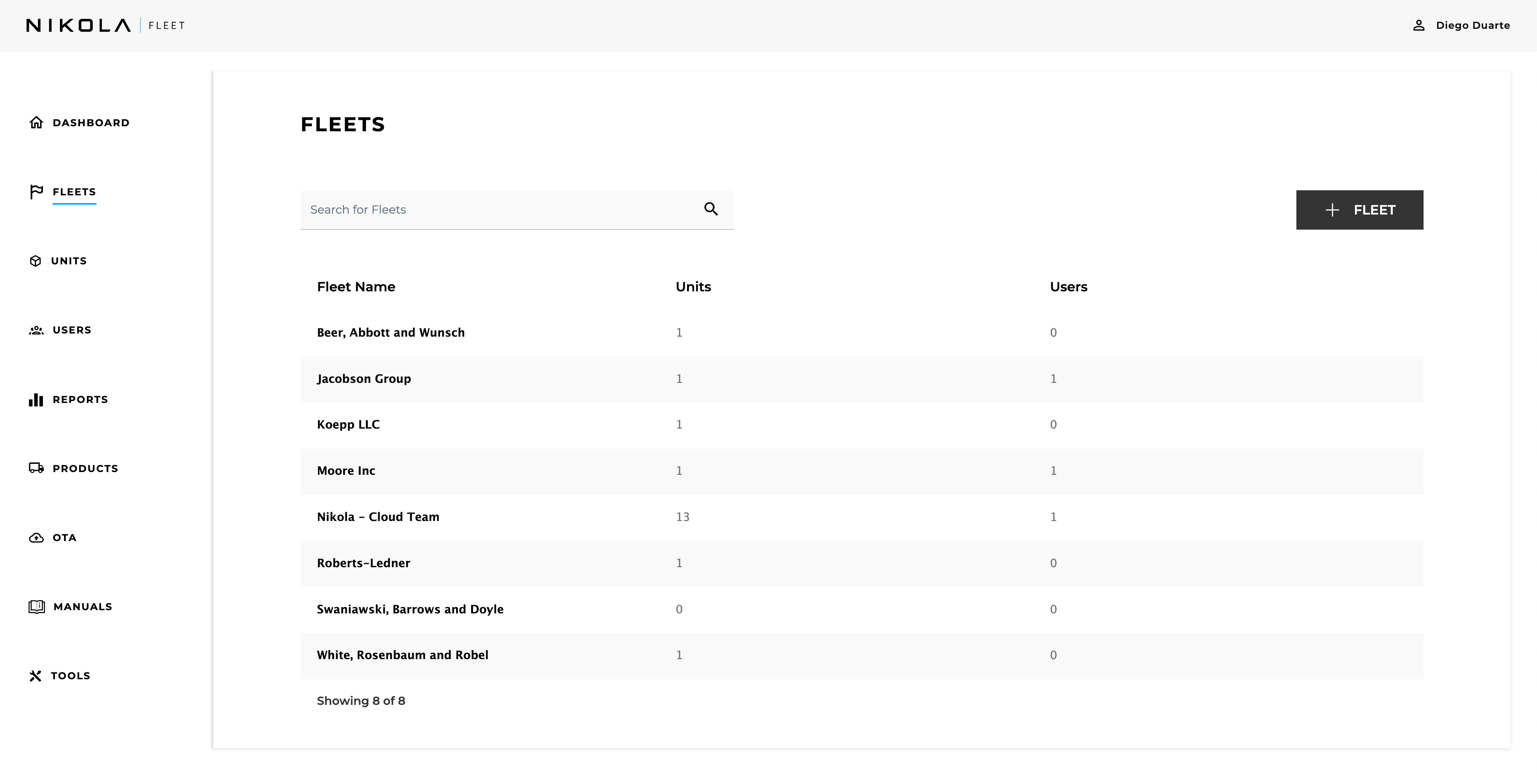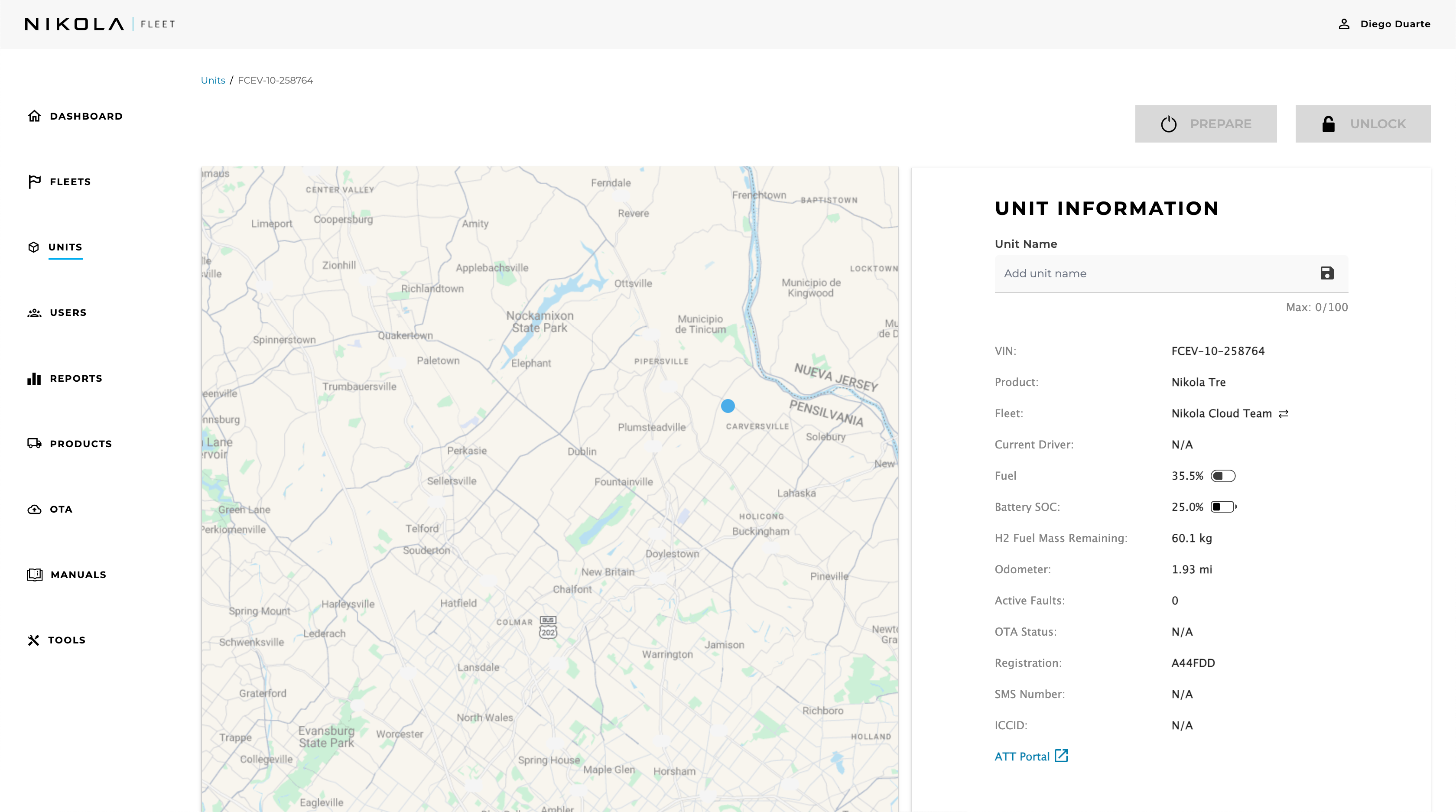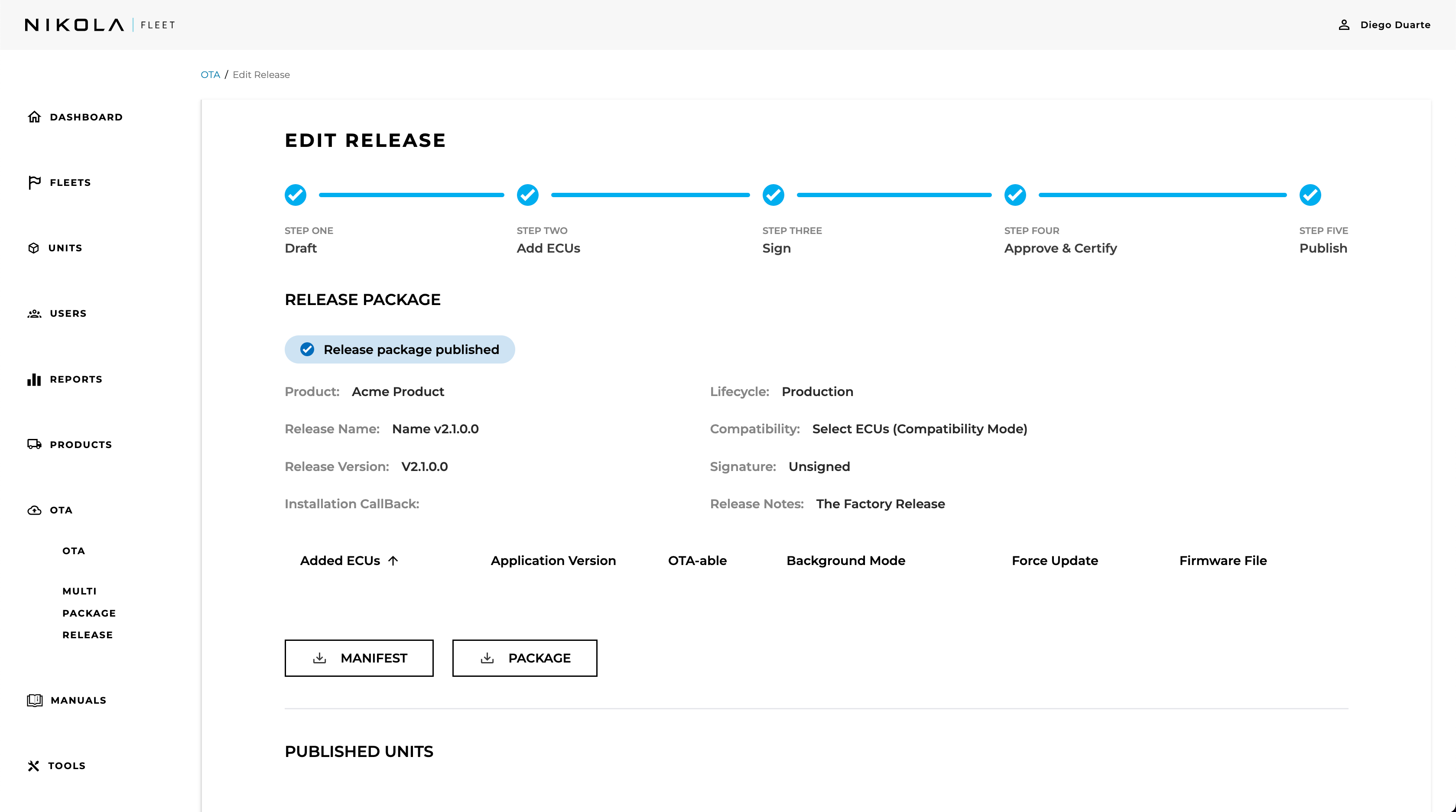Client
Nikola Motor Company designs and manufactures Battery-electric (BEV) and Hydrogen fuel-cell (FCEV) vehicles, vehicle components, energy storage systems, and electric vehicle drivetrains.
Nikola has developed several different vehicles, putting an emphasis on performance, and working towards complete zero-emissions, from production to consumption of energy.
Requirements & Context
Vehicle connectivity is a crucial enabler for data collection, vehicle monitoring, and remote functionalities. This telematics system captures data that Nikola trucks send over satellite.
The goal of this project was to build a telematics system that also served as a data hub, to enable the high availability of information that leads to meaningful insights.
The Fleet Command is a portal where:
- different people in the organization can access and visualize vehicle data
- fleet administrators can manage fleets, users, and units
- Nikola can publish over-the-air (OTA) updates to vehicles
- service technicians can view incidents and perform remote diagnostics
In addition to feeding the Dealer Portal, the telematics system also feeds a portal where admins can view back office data for each fleet. The scope of our work also included some maintenance and evolution tasks for said portal, which is 100% internal, used by the technical personnel at Nikola.
Approach
We collaborated with Nikola’s engineering staff, bringing two of our Senior Developers to work hand in hand with their development team for code reviews, in addition to building new features. We were constantly involved in the planning and implementation of these new features.
The backend was built on Ruby on Rails, with a StimulusJS frontend and a PostgreSQL database.
Results
Our collaboration with Nikola led to significant improvements in their telematics and fleet management capabilities. We contributed to a more efficient, scalable, and feature-rich system that empowers both fleet administrators and service technicians.
The introduction of advanced signal filtering significantly improved data accessibility, allowing users to extract meaningful insights from vehicle telemetry with ease. The new over-the-air (OTA) update mechanism streamlined the process of deploying multiple firmware updates at once, reducing downtime and increasing operational efficiency.
Security and user management were also strengthened with the implementation of single sign-on (SSO) , improving access control while simplifying the login experience. In parallel, our upgrade from Rails 6 to Rails 7 ensured the system remained robust, performant, and aligned with the latest security standards.
By enabling multi-language support , we helped improve accessibility for Nikola’s diverse user base, ensuring that fleet administrators, technicians, and internal stakeholders could navigate the system in their preferred language.
Beyond feature development, our work in code reviews and ongoing maintenance contributed to the long-term stability of the platform. Our close collaboration with Nikola’s engineering team ensured that new features were implemented efficiently while maintaining high code quality and system integrity.
The result is a more reliable and flexible telematics system that not only enhances real-time vehicle monitoring but also strengthens Nikola’s ability to manage fleets, deploy updates, and support service technicians—all through a single, integrated platform.
Fleet index
This screen shows the list of Fleets that the user has access to, along with how many units and drivers (users column in the screen) a given fleet has.

Unit information
This screen shows Unit details such as the odometer, fuel level, battery level, product type, driver, etc. It also allows users with special roles like technicians, super users, etc., to lock or unlock the unit and prepare to start it.

Releases
This screen shows the steps required for publishing the firmware that updates the trucks’ software, along with its details like product type, release version, notes, lifecycle, notes, etc.

Contributors

Francisco Tarulla Alumni

Diego Liberman CEO

Diego Duarte Full-stack Engineer

Johannes Muller Principal Engineer

Julien Portalier Principal Engineer

Bolo Michelin Alumni

Caspian Baska Alumni

Carlos Stutz Zillner Alumni